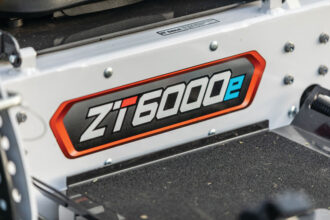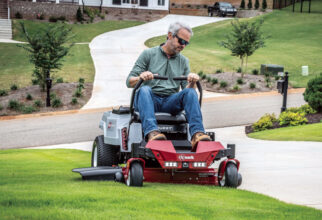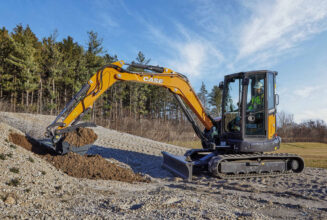Dealer, distributor reflect on business operations in COVID-19
Despite the vast majority of outdoor power equipment dealers being deemed essential businesses and allowed to operate as the nation shut down its economy and state governments prescribed restrictive guidelines for movement, dealers and distributors are feeling the pinch. Outdoor Power Equipment staff reporter Kali Kotoski reached out to a couple of them in Midwest to see where their business operations stand.
Ralph Helm, owner of Ralph Helm, Inc., which has two dealerships in the Chicago metropolitan area, has seen sales slide as lockdown measures took effect and the unemployment levels surged toward levels not seen since the Great Depression.
“Our business has not only been impacted financially by the virus with sales down about 20 percent, but also psychologically with employees and management concerned for safety and health for themselves and those around them as well as job security,” Helm said via email.
Ralph Helm, Inc. carries products from BOB-CAT Toro, Cub Cadet, STIHL, Echo, Honda power equipment including engines, Wacker Neuson, Bear Cat, Billy Goat, Ryan and engines from Briggs & Stratton and Kawasaki.
For over a month, both of Helm’s stores had to operate on a curbside basis, which created a bit of frustration due to the additional time and physical effort required to keep business going.
However, Helm has learned to adapt while remaining vigilant in regards to social distancing guidelines.
“One store was able to open up to the public with changes to our traffic pattern inside as well as limiting the number of customers inside,” Helm explained. “Our second location, because of their store layout, is still operating curbside.”
Ralph Helms, Inc. has been forced to cancel or postpone open houses and has had to scale back advertising due to many items from manufacturers being back ordered.
With the 20 percent decline in sales, commercial sales have taken the biggest hit. And while internet sales have seen dramatic increases, it has not been enough to offset in-store purchases.
All things considered, Helms is optimistic for the 2020.
“I think we should look at this from a glass-half-full approach. When times are tough, that is when the personal service that small businesses give is appreciated the most, people will remember the ones who went the extra mile for them and will tell others about it. I can’t remember the last time we had a ‘normal’ year. We just need to adapt and persevere,” Helms said.
From the distributor side, Arin Monroe, president of Ohio-based Hayward Distributing Co., which is affiliated with a bevy of companies, thinks sales are down mostly because of the psychological effects of social distancing guidelines.
“I believe the impact has really been felt at the retail dealer level with customers not sure if they want to visit public places,” Monroe said via email.
Primarily, larger equipment has taken the brunt of the slowdown, mainly because it requires more of a sales process with the dealer, he explained.
“Smaller equipment can be picked up curbside much easier. Parts and repair still seem to be doing well,” he said.
Hayward Distributing Co. has put in place proper safety measures to continue operating as a distribution facility. However, he said, with most customer service personnel working from home, the company is not allowing will-call orders to be picked up.
“The orders being placed online by our dealers seem to be about normal at this point. We expect service levels to continue as normal,” He said.
The company has also increased promotional activity to drive business to dealerships and has been able to retain all employees.
With financial help from the Small Business Association, he doesn’t expect employment levels to decline.
“Our people are the backbone of our organization and are all essential right now,” he said.
With sales softer than expected due to the COVID-19 pandemic, he has hope that with cooler than average temperatures across the Midwest, the typically robust season could be extended, allowing them to capture some of the lost sales.
“But only time will tell,” he added.
As for the rest of the year, Monroe will be seeking to balance the inventory levels that were brought in for a normal spring against the downturn in sales.
“There are products that will have a better than average year and that will help some,” he said. “The duration of the COVID-19 situation will be our defining factor. The sooner we get back to ‘normal’, the better.”
Contact Kali at kkotoski at epgmediallc.com.




